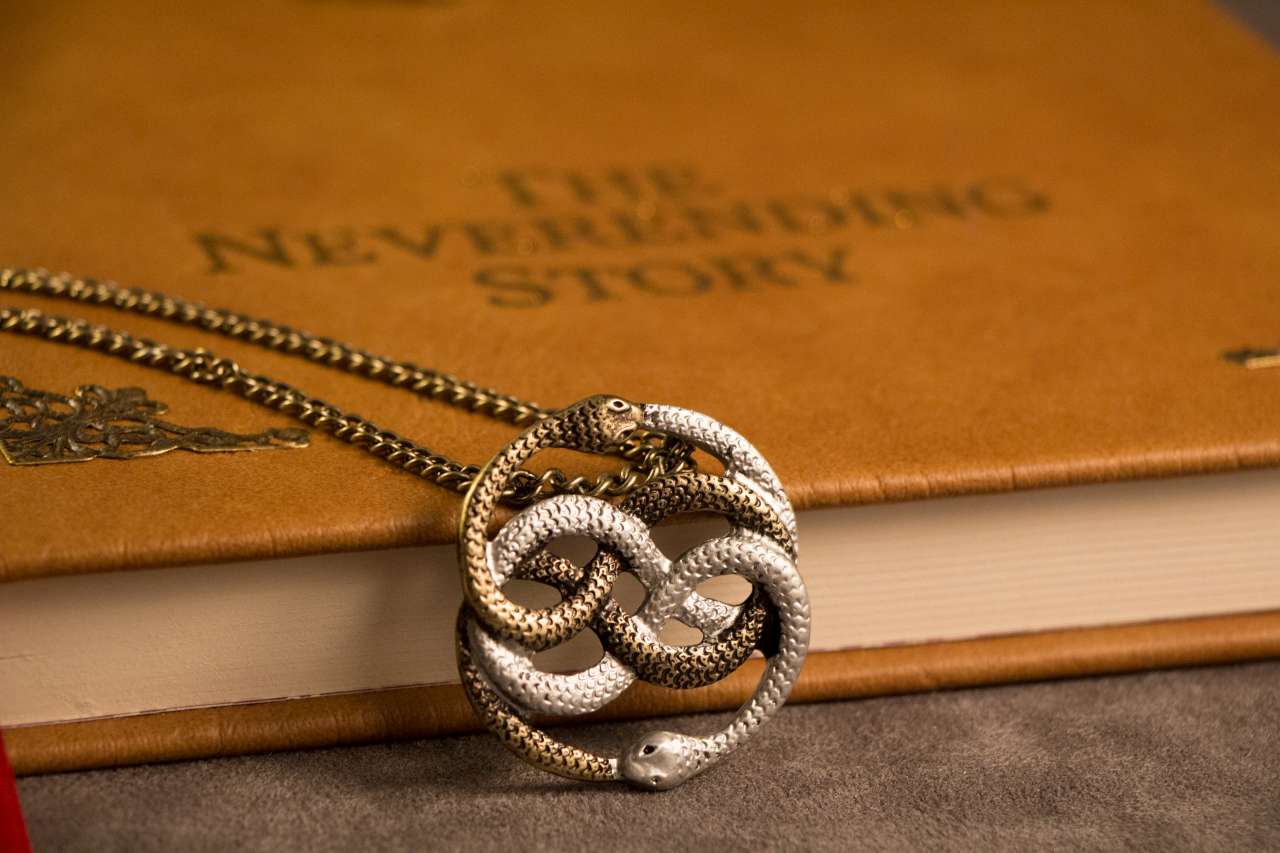“Do What You Wish” (or, the original German, Tu Was Du Willst), is the message found inscribed upon the mystical medallion called AURYN in Michael Ende’s fabulous fantasy novel The Neverending Story (German, Die unendliche Geschichte). This mystical medallion plays a central role in the unfolding of the story as Bastian Balthazar Bux, the main character (more or less), enters the world of Fantasica and receives AURYN and its powers. For those interested in these types of stories, read this book. Sparing the details of how the story works, the phrase on the back of the medallion is intriguing: “Do What You Wish.” As the book unfolds, Bastian finds out that this seemingly obvious message is more complicated than it first appears. What you wish, it turns out, is not so easy to understand.
Check out Searching for Something for some more thoughts on the search for something everyone is on.
The meaning of “Do What You Wish”
In short, The Neverending Story plays on two related but distinct meanings of the phrase “Do What You Wish”: (1) do whatever you want or (2) do what you truly want. Bastian, on first reading the message, assumes it means (1) do whatever you want. He travels throughout Fantastica following his creative whims, making the world his own story however he pleases.
Each act of “doing whatever he wants,” though, steals a small part of Bastian away. He is rescued in the end when he finally learns that “Do What You Wish” means “you must find what you truly want and do that.” Finding what he really wants leads him back to the normal world, peace with himself, and a restored relationship with his father.
The Neverending Story is a clever fantasy retelling of the perennial story that finding what we actually want is counterintuitively more complex than merely following what we want.
What do you want?
What you wish for is not simple. In line with the recent sermon series The Word Still Speaks, I have been thinking about how God’s word relates to “what we want.” To put it into a question: do we engage with God’s word because that is what we want, or do we engage in God’s word as part of the process of finding what we most deeply want?
Neither of these is wrong but engaging with Scripture merely based on our whims is not a sufficient approach. In Scripture, God asks us to surrender in the most profound way: to surrender our (sense of) control over our own lives and instead move into the world that truly is, where God reigns and all things happen in line with his intentions. Even for those who have made the initial step in following God, this sort of surrender is often not enjoyable, not what we want in sense (1) from above.
When we think about engaging the Word of God—and all of life, really—we must be careful about how we look for “what we wish.” The easy and intuitive answer of “what I wish” to do right now may be, and often is, completely at odds with what you really wish in life.
At any given moment in life, most people would be able to answer the question “what do you want to be doing right now?” without a moment’s thought. As I am writing this, I would like to be sitting out in the beautiful sunny day. That is what I want right now, in the sense of (1). But going from one thing we want to the next in this way would resemble a cat chasing a laser dot in a hall of mirrors: something always looks worthy of chasing, but there is little hope of ever getting anywhere. Part of the journey into adulthood is learning the fact that we often must do something other than what we wish at any given instant.
But growing up in this sense doesn’t mean we ever learn to question why we wish what we wish.
Finding “what you wish”
The Scriptures work more on the sense (2) from above. It speaks to the “you must find what you truly want and do that” part of life. A key reality of God’s word is that it serves to guide our hearts to understand what is truly desirable. The more we surrender to God in his word, the more our heart opens up to realize what it truly wants but hasn’t been able to put into form.
Back in terms of The Neverending Story, each of us has a similar fate to Bastian. We embark on life, receive AURYN and its “Do What You Wish” message and have to figure life out. Finding that can be hard. Getting lost and distracted along the way is easy. It is easy to get so lost in “doing whatever I want” that we miss out learning what it is that our hearts really want.
One of the many ways God gives us to learn what it is that we truly wish is the Scriptures. The Bible intends to be the norming story of our lives. It lays down the guidelines and guardrails to lead us along. But rather than thinking of it as a book of rules for life (and it certainly has its share of rules), we can think of the Bible as a guide. Words whispered—sometimes shouted—from the heart of God to draw us back to him. Because only in finding our way to God can we learn to “Do What You Wish.”

